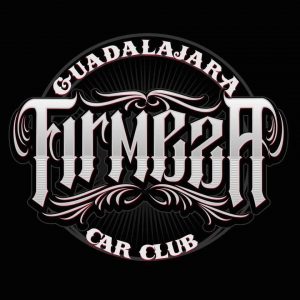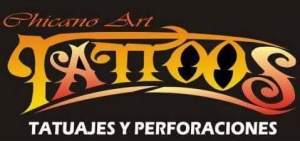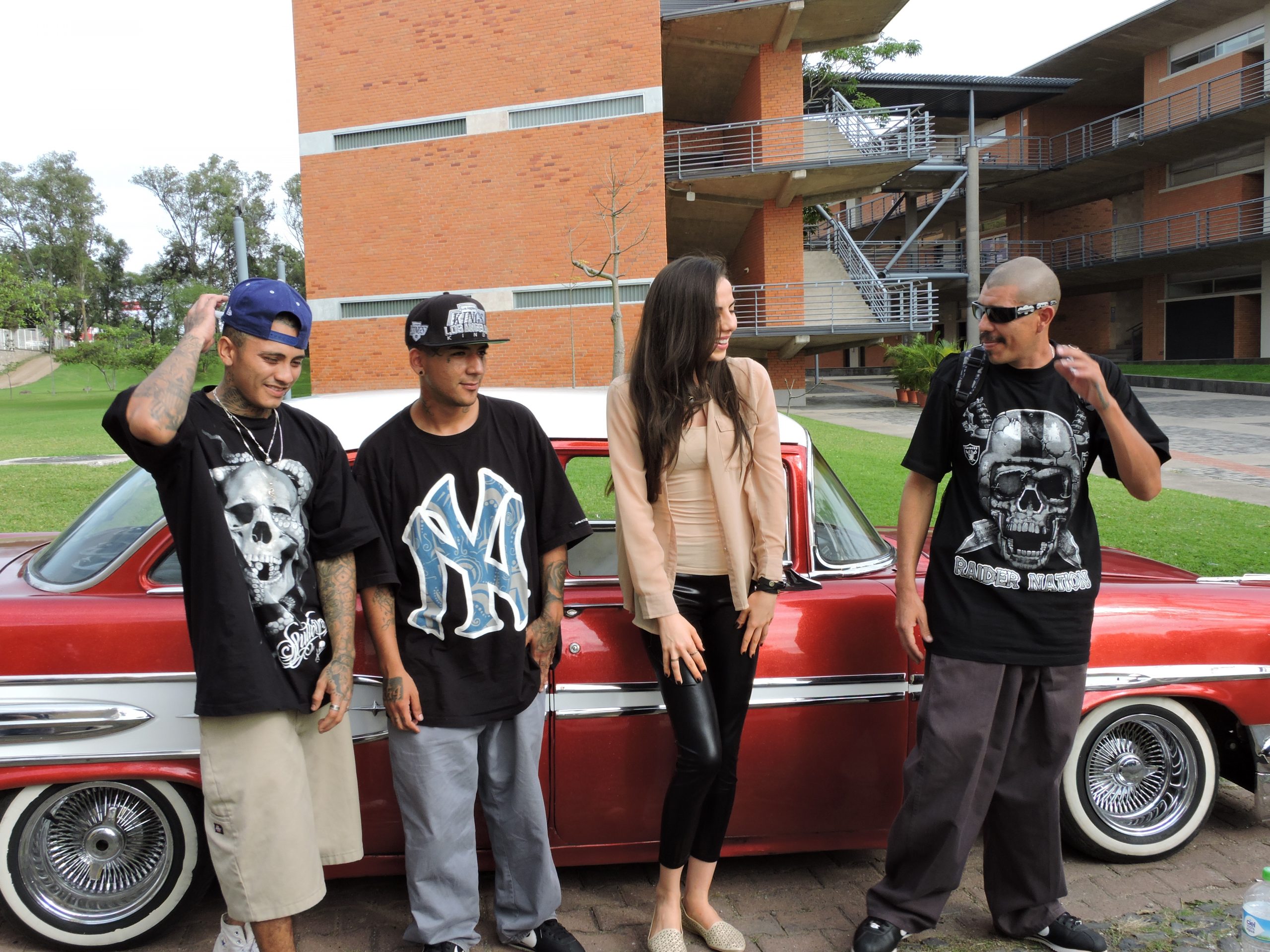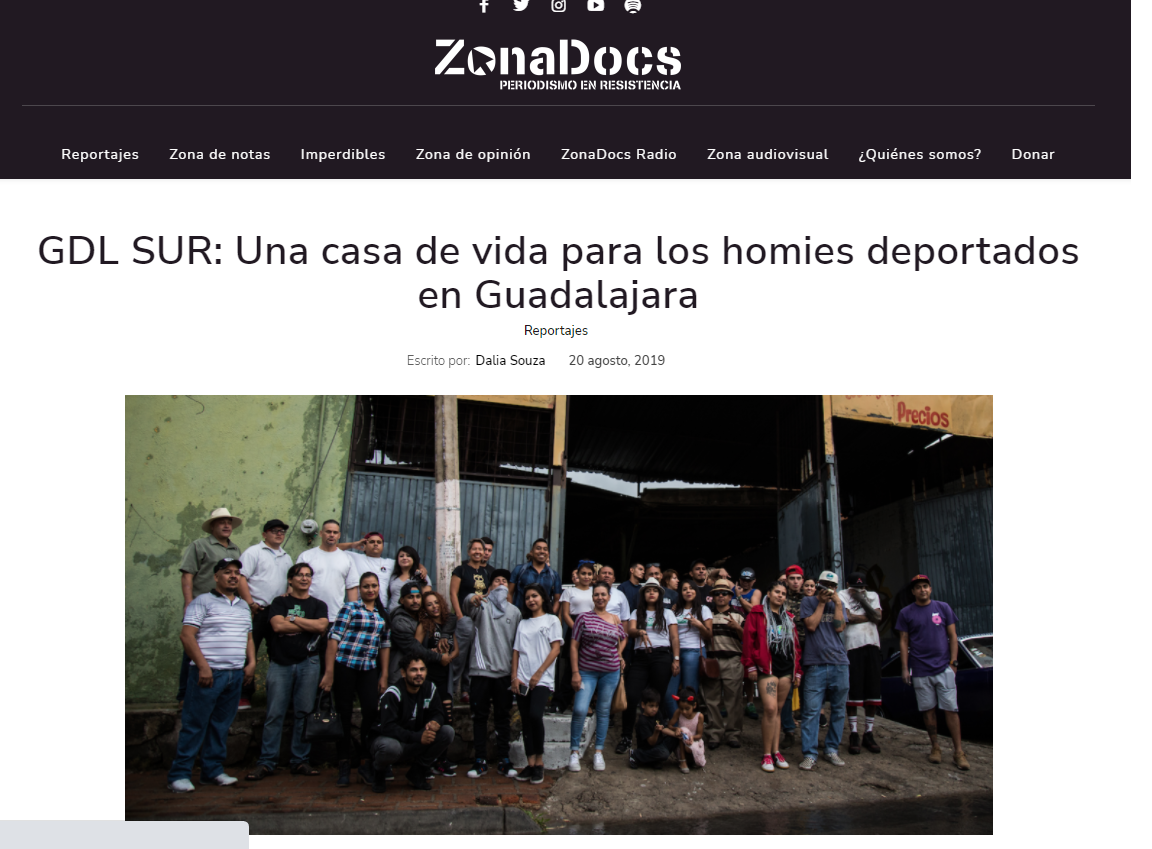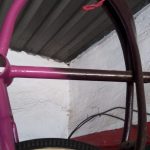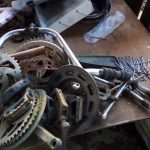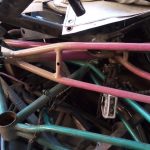Mission
Provide hope, comprehensive care and accompaniment to deportees or returnees who have lived in the United States and have a binational culture, have belonged to gangs or have served a period in jail and do not have strong family networks.
Attention
We provide a care program so that people can regain their physical and emotional health, primarily at three levels: substance abuse rehabilitation, psychological counseling and medical services.
Vision
Grow the House of Life and the services offered, to help more Homies, offering them a safe space and making it sustainable through their own integration activities.
ABOUT US WHO WE ARE
Roberto is originally from Culiacán, Sinaloa, but a few months after he was born his mother took him and his sister to live in Los Angeles, California, which caused him to grow up with a Chicano culture. From an early age he began to have a criminal record and in 2004 he was deported to Tamaulipas after spending eight years in jail.
On his return he decided to settle down and start a new life in Guadalajara, at first it was difficult for him because he was discriminated against and rejected because of his history, he entered a rehabilitation clinic and there was really no one who understood him because he had a Chicano culture and was different from the one. of others. Therefore, Roberto decided to prepare for 5 years and become an addiction counselor in Mexico, that way he could help more homies like him, who have gone through a situation similar to his.
From his own experience, Roberto knows how difficult it is to integrate, however, through GDL-SUR that opened its doors in March 2010, it has managed to rehabilitate other people and be a community that does not judge itself and supports itself to get ahead.
- General Education Diploma (GED), equivalent to high school.
- Addiction counselor, certified by the Jalisco State Addiction Council.
- Numerous leadership and mental health workshops
- Participated in many adiction treatment groups
- Diploma on Psicological First aid for Migrants, Displaced People and Refugees
Do you need helpl homie?
We can help you! Call us, write to us or come down! Address: José Ramos #50 Col. Tetlan, Guadalajara, Jal. CP 44820
- 331-641-0550
- robherran.11@hotmail.com
Rehabilitation
As a first step, we provide support for people who have alcohol and / or drug addictions, beginning a process of healing and transformation.
Reinstatement
Hand in hand with rehabilitation, we provide support to achieve reintegration. Finding work is difficult, because the skills of the homies are not usually valued, in addition to this, some do not speak Spanish and lack documentation such as IDs, certificates that prove their studies or work experience, among others... We provide information and support to achieve labor, educational, housing, documentation integration, that is, to all areas that allow you to have a decent life project in Mexico.
Psychological counseling
Deportation is a shock, and most have lived long parts of their lives in the United States, some do not know Mexico, this being a radical change and some even spent time in prison, so they return to Mexico after an experience of confinement. For this reason, psychological counseling is essential to help your emotional health, in conjunction with rehabilitation and reintegration.
Who we help (Who are the homies?)
Who we help (Who are the homies?)
According to the interview conducted by Zona Docs, Roberto explains to us who the homies are from his own experience, they are Mexican nationals who came to the United States very young, and who, at some point, belonged to a gang or served a sentence in prison . The common denominator between them, says the founder of GDL SUR, is that they are non-consanguineous brothers who share stories, a mixed language and very similar life experiences, as well as a culture that mixes between the Mexican and the American, represented through of Chicano art (Zona Docs, 2019).
This project generates second chances, for those who seek to make a change in their life, but do not even know where to start. GDL SUR provides them with the necessary tools to achieve this, in an environment of understanding and acceptance.
Another example of the movilization and social action made by GDL SUR is the support we gave to a homies family who were able to recover his sons body. Being far away, the family had to cooperate with us to dispose the body with dignity
I was born in Salamanca, Guanajuato, and my family and I moved to the United States when I was 9 years old. At the school I was in, in Lancaster City, Los Angeles, little by little I found myself with the comrades, with the little ball of Hispanics, we grew up together, we started to form a group and we got into a gang. I was 13 years old. We were like 300 members, it was a huge gang, with 8 clicas; cliques are groups by zones, by colonies. I learned several things from the gang, one was friendship, that we were like family, the other was that I learned how to make money... At a party they wanted to kill a friend and we caught ourselves, when we went to look for the enemy they grabbed us. I ended up in the juvenile for possession of a firearm, gang membership and conspiracy to commit murder. What screwed me up was the conspiracy conviction. They sent me to court on my birthday, I was going to turn 15. They gave me four youth strikes, that makes one an adult. Until I signed they told me. When I got out of prison I was 23 years old. When I arrived in Guadalajara, I bought a $ 400 pesos soulflower, a $ 600 power source, and I started tattooing at the home of Alicia, my then girlfriend and now my wife. Now I have two children and they are what keeps me stable and well. Now I have two clothing stores and a tattoo studio called Chicano Art Tattoo. Nobody from the Mexican government helped me, nobody. The one who received me was a comrade. When I started helping Roberto, I was struck by being able to support the people who come here and have no family.
Cartoon
Super HomieI am from Guadalajara, Jalisco. I have been in the United States since I was two years old and I will turn 30 in August. There I lasted 20 years; At 13 I began to know the gangs, with pure people with whom I went to school from Morro, in elementary school. At 14 I had to go to the ward for assault with a knife. I was there for three months and I promised my boss that I wouldn't do it anymore, but I fell four more times. Then they caught me for attempted murder with a knife, and I ventured out for 18 months; I was in custody until I was 17 years old, they threw me to the prison at 19 and when I served my sentence they deported me to Mexicali. My boss helped me come to Guadalajara and I'm going to be here for 10 years. Now I am working in the call center that we set up here at Casa de Vida.
Pelón
Master HomiePARTICIPATION IN PROJECTS
We have a close circle of cultural and social groups made up of people who have returned to Mexico after living for a long time in the United States. Also, we are linked with academics locally, who work on issues of return migration and who support us in the search for resources in order to strengthen our projects and to publicize our work. We are linked with organizations that support returning migrants at the national level, although we do not constitute a formal network, we have made some collaborations.
Allied projects
We are linked with organizations that support returning migrants at the national level, although we do not constitute a formal network, we have made some collaborations.
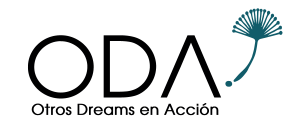
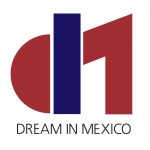
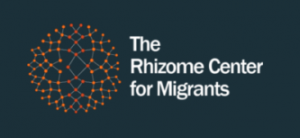
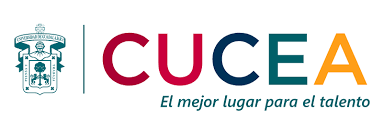
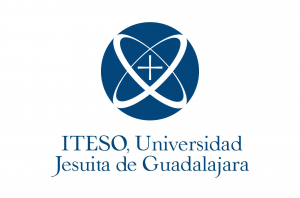
PIMSA

Photovoice of here and there
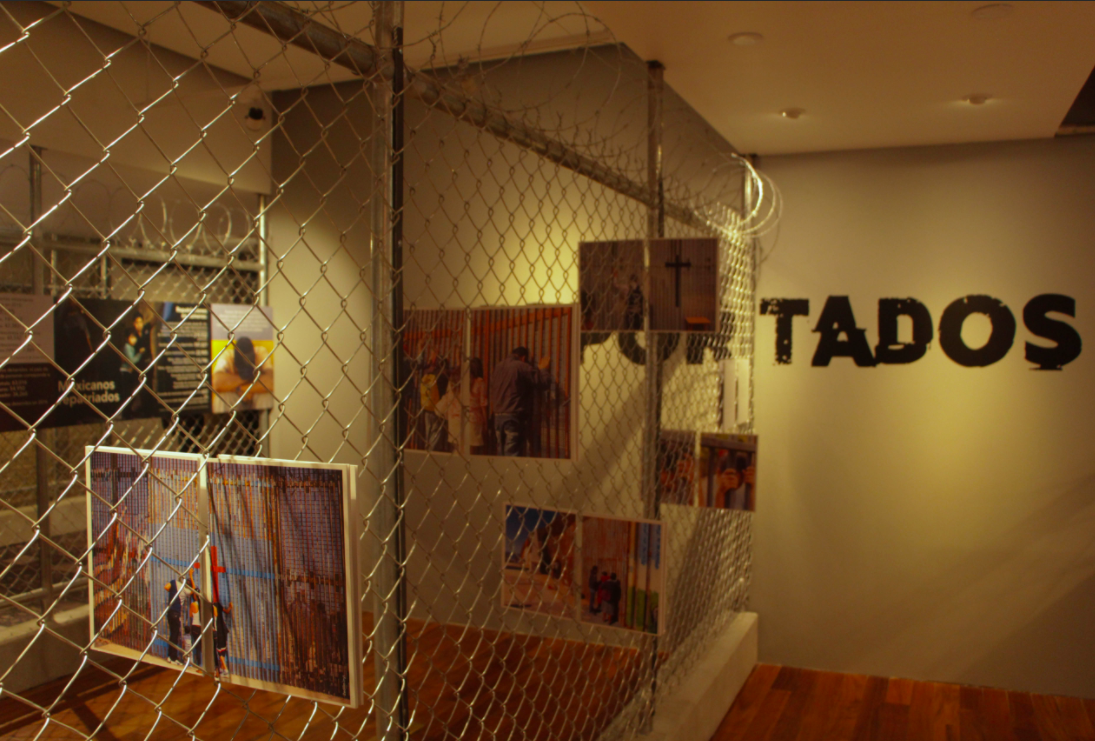
Exhibition walls, migrants and refugees

Chicano art exhibition

Start from Zero
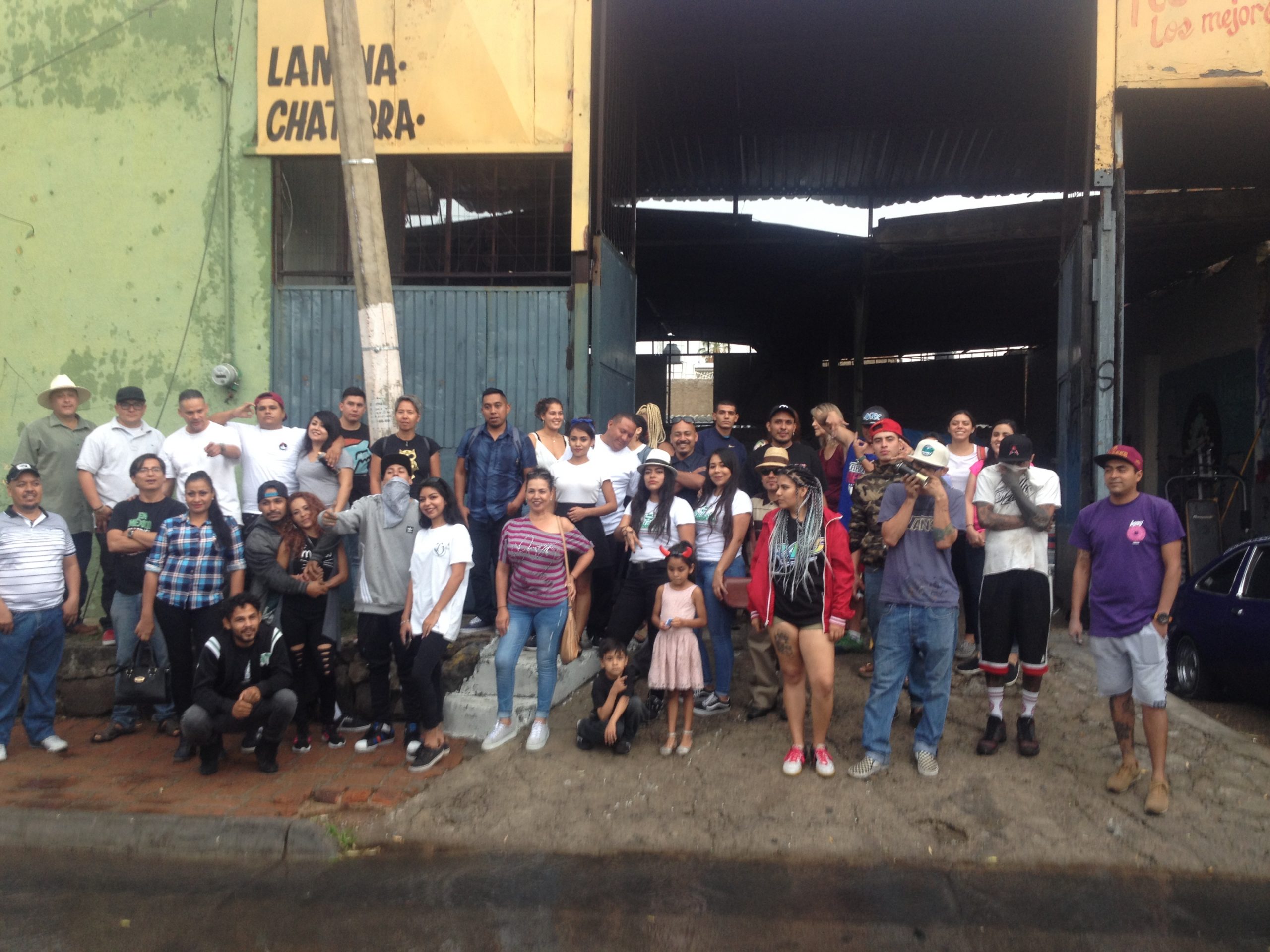
Tuned cars, graffiti and murals show
Do you have
any question?
-
ADDRESS
José Ramos #50
Col. Tetlan, Guadalajara, Jal.
CP 44820 -
331-641-0550
-
robherran.11@hotmail.com
SUPPORT US/DONATE/HELP US
The very members of the community who have been detoxified for three months, work to obtain a source of income and in turn contribute to the costs generated in the living house.
Although little support has been received over the years, most of the resources that support the project come from the work of its founder.
Currently, in order to integrate into work, they have a call center through which all the expenses for the living house are supported, since there is no cost to enter rehabilitation, they also have a car club called Firmeza, a group of rappers called Squadron Family and several tattoo shops.
For the time being, GDL SUR is using an ally person paypal account, please include "GDL SUR DONATION" in the reference section.
In-kind donations
If you're interested in supporting the project with in-kind donations we need:
-Foods: basics like beans, rice, vegetable oil, can foods, pasta, etc.
-Personal care: body soap, shampoo, tooth paste, etc.
-Cleaning: detergent, chlorine, fibers, etc.
For the bicycle shop:
- Bicycle repair materials, old bikes, bicycle parts, bicycle tires, tools, etc.
